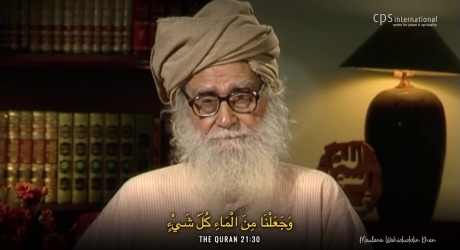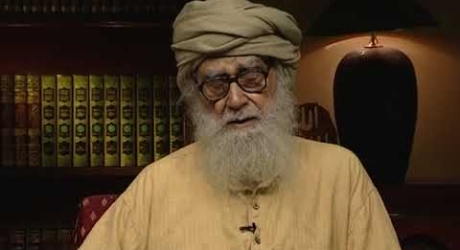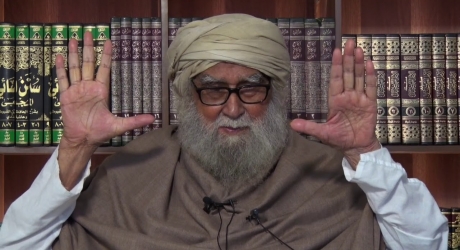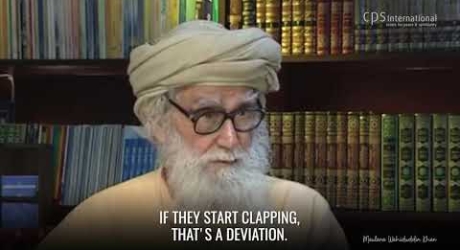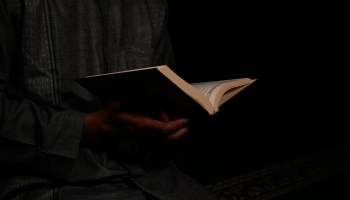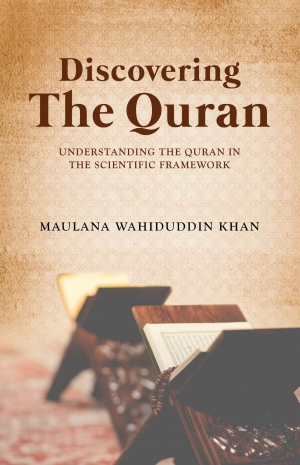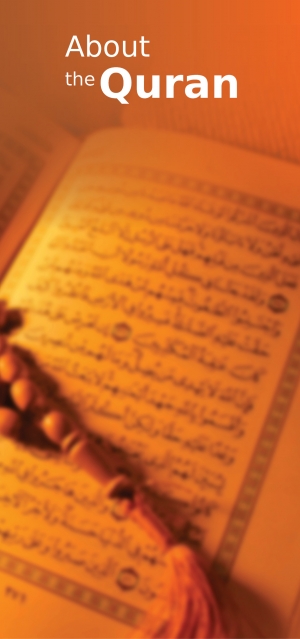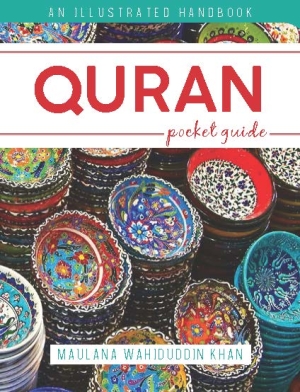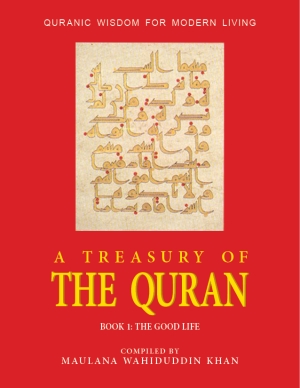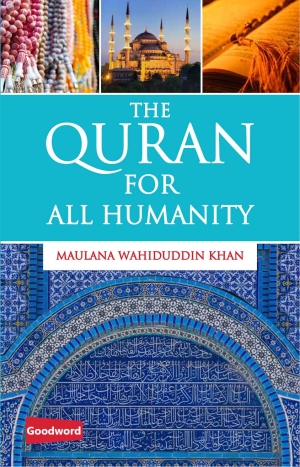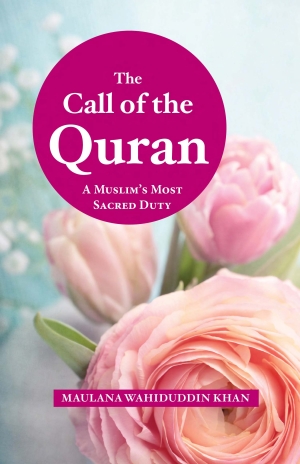The Quran is the Book of God preserved for all time to come. It is written originally in Arabic and accessible through its translations to the non-Arabic knowing world. English is truly an international language. The Quran Complex, Madinah, Saudi Arabia, in a research on the English translations of the Quran, concluded: “Despite 47 English Quran translations, none has received the acceptance of the modern world.” [Bibliography of the Translations and the Meanings of the Quran in English (1649–2002)] To fill this gap, Maulana Wahiduddin Khan worked tirelessly to translate the Quran into English, published in 2008 under the title The Quran. Edited by Professor Farida Khanam, the translation is in contemporary English, lucid, easy to understand, and has received universal acceptance. In its introduction, the Maulana explains that the Quran aims to bring about an intellectual revolution within man, called maarifah (realisation of truth) (5:83), and make him aware of the Creation plan of God. The purpose of the Quran is to tell man why God created this world, the purpose of settling man on earth, what is required from man in his pre-death life span, and what he will confront after death.
The Quran, thus, serves as a guide for the man in this world as well as in the Hereafter.
Featured Articles
Featured Videos
Sub Themes
FAQs
When you read the Quran, you will repeatedly find it stated that it is the word of God. Apparently this is a plain fact. But when seen in context, it is an extraordinary statement. There are many books in the world which are believed to be sacred. But, except for the Quran, we do not find any religious book which thus projects itself as the word of God. This kind of statement, appearing uniquely in the Quran, gives a point of departure to the reader. He then studies it as an exceptional book, rather than as a common book written by human beings. We find recurring in the Quran statements worded more or less as follows: ‘O man, it is your Lord, who is addressing you. Listen to His words and follow Him.’ Even this style of address is quite exceptional. This kind of direct divine invocation is not present in any other book. It leaves a lasting impression on man. He feels his Lord is directly addressing him. This feeling compels man to take the assertions of the Quran with extreme seriousness, rather than treat them like everyday statements in an ordinary book. The style of compilation of the Quran is also unique.
Books written by human beings usually have their material arranged in order from A to Z, according to the topic. But the Quran does not follow a pattern of this kind, so that to the common man it appears to be lacking in order. When looked at in reality, however, it will emerge as an extremely coherent and orderly book, and quite majestic in its style of writing. While reading the Quran, we feel that its writer is on a very high pedestal from where He is looking down and addressing the whole of humanity, which is His special concern. This address focuses on different groups of human beings while encompassing all of them.
One special aspect of the Quran is that at any moment its reader can consult its Writer, put his questions and receive answers, for the Writer of the Quran is God Himself. He is a living God. As man’s Creator, He directly hears and answers man’s call.
Source: The Quran
The proof that the Quran is a divine book lies in several key aspects that affirm its authenticity and unique nature. Firstly, the Quran presents a challenge to humanity by inviting individuals to produce a text comparable to it, claiming that no one has been able to meet this challenge since its revelation. This assertion highlights its unparalleled literary quality and depth, suggesting a divine origin. Moreover, the Quran is characterized by its consistency; it does not contain any contradictions, which is cited as a significant indication of its divine authorship. The preservation of the Quran in its original form since its revelation further supports its claim to be the word of God, as no other religious text has maintained such integrity over time. Further, the Quran addresses profound truths about human nature and the universe, which were not known at the time of its revelation. This foresight is viewed as evidence of its divine inspiration. The linguistic excellence, consistency, preservation, and profound insights of the Quran collectively serve as compelling proof of its divine origin.
Source: The Quran An Abiding Wonder
Yes, a non-Muslim can read the Quran. There is no restriction preventing non-Muslims from accessing the Quran, and many have expressed interest in reading it to understand its teachings better. The Quran is available in translations, making it accessible to those who do not know Arabic. When you read the Quran, you will find that it deals with all the subjects relating to human beings. But the basic theme of the Quran is the Creation Plan of God. All other subjects touched upon by the Quran are related to this theme, directly or indirectly. God Almighty created the universe, and it is God Almighty who revealed this book called Al-Quran. The primary purpose of the Quran is to reveal that divine plan according to which the world was created, and man was settled in it. In summary, the Quran is a book meant to be read by all, and its teachings can provide valuable insights regardless of one’s religious background.
The Quran addresses women with respect and emphasizes their rights and dignity. The Quran says: “You are members, one of another.” (3:195) This shows that men and women have no difference regarding status, rights, and blessings in this world and the Hereafter. From this, we can understand that both men and women are equal in status and deserving of respect, although they may have different roles. The Quran commands kindness and justice in relationships, stating that women should be treated fairly, and their rights should be honoured. Moreover, the Quran encourages men to uphold high standards of conduct towards women. It acknowledges the importance of women in society, recognizing their contributions and rights, and emphasizes that any apparent imperfections in relationships should be approached with patience and understanding. Furthermore, the Quran provides guidelines for maintaining harmonious relationships and promoting reconciliation in cases of conflict. In essence, the Quran advocates for the empowerment and equitable treatment of women, affirming their vital role in both the family and society at large. Possessing qualities of gentleness, compassion, patience, and emotional connection, women have been bestowed by the Creator the role of shaping future generations of human beings. In this sense, women are ‘builders of humanity.’
Source: Woman In Islamic Shariah


